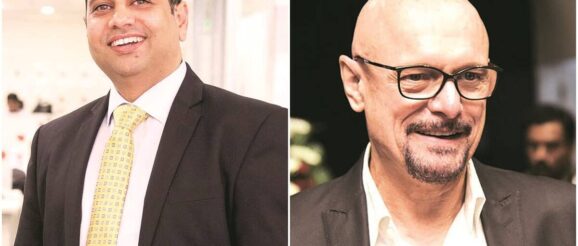Medical Technology: Siemens Healthineers bets on Indian health tech talent at innovation hub – The Financial Express

By Srinath Srinivasan
For German medical technology company Siemens Healthineers, India is increasingly playing a key role in its growth strategy. Last week, Siemens Healthineers announced plans to invest Rs 1,300 crore (EUR 160 million) over the next five years in a new innovation hub in Bengaluru. The innovation hub will be housed in a new campus that combines the existing R&D centre and an ultra-modern medical imaging factory. It also plans to add up to 1,800 digital talents in the next ten years in India.
This new investment plan is part of the German major’s ‘Strategy 2025’, in which India plays an important role as a growth market. The new Bengaluru campus will be one of its four innovation hubs, with the other hubs located in the United States, Germany and China.
Over the years, the medical technology firm has invested about `2,500 crore (EUR 300 million) in R&D activity in the country. With the existing R&D centre at Bengaluru hosting about 50% of Siemens Heathineers’ software engineers, the centre plays a strategic role in developing software products and platforms for imaging, diagnostics and advanced therapies.
“We have developed a number of components here for our AI-Rad companion applications. These are used by radiologists to analyse images. More recently, we developed a program to analyse CT images with respect to Covid-19,” says Gerd Hoefner, senior vice president-Development Center and managing director, Siemens Healthcare, talking about the work done from the existing Indian facilities that have found use globally. The existing R&D-manufacturing facility in Bengaluru is also working on pathway companion for Covid-19, which are disease-specific support systems for diagnosis and treatment.
In April this year, the company also announced an accelerator programme in collaboration with Nasscom to incubate startups in the health-tech space.
Given this, the new campus is aimed at consolidating all the activities that the company undertakes in Bengaluru. “We already have 400 people working across competencies. As we add more, we will bring out work on augmented reality (AR), virtual reality (VR) and Artificial Intelligence (AI). Our TeamPlay platform will play a key role in connecting hospitals and competencies. We already utilise open source for software R&D and we will continue to build on it,” he explains.
Bengaluru as a tech hub offers a versatile talent pool for Siemens. Hoefner believes that it is an ideal location for an innovation hub because of its strong innovation and healthcare ecosystems, coupled with reputed educational institutions.
“The innovation hub in India will enable collecting the market requirements at the product design stage itself. We continue this collection till prototyping and development is complete. The new hub will take us closer to understanding pain points in the market,” adds Vivek Kanade, executive vice president – Zone India, Siemens Healthineers.
The new hub will include 70,000 square metre of office space for the enlarged R&D centre and 5,000 square metre of factory space within the same campus which will aid the product development. Today, Cios Fit C-arms and Somatom go. CT scanners are designed, developed and made in India and are sold in South-East Asia, Africa, Eastern Europe and South America. The new hub will also address the affordability challenge specific to these markets.
“Immersive experience, remote services, pre-operation simulation service, surgical room planning, cyber security for vendors, will be necessities in the future. The new hub will address these key areas through various stakeholders in our ecosystem,” says Hoefner.
Medical treatment is shifting towards precision medicine which is enabled by AI and cloud. Innovation hubs catapult this pursuit. In the grand scheme of things, it’s about incorporating AI further into medical procedures. This will increase remote availability and accessibility; the demand for which surged during the lockdowns.
With new tech, it is not just new business models but also new challenges that come up. “We were agile during this ongoing challenging times and remote working experience. When the new hub opens the challenges may evolve and we will try to overcome that with innovative business models and technology,” says Kanade. “The hub will accelerate our work on AI. We can understand the market better and offer better solutions.”
Get live Stock Prices from BSE, NSE, US Market and latest NAV, portfolio of Mutual Funds, calculate your tax by Income Tax Calculator, know market’s Top Gainers, Top Losers & Best Equity Funds. Like us on Facebook and follow us on Twitter.
![]() Financial Express is now on Telegram. Click here to join our channel and stay updated with the latest Biz news and updates.
Financial Express is now on Telegram. Click here to join our channel and stay updated with the latest Biz news and updates.
